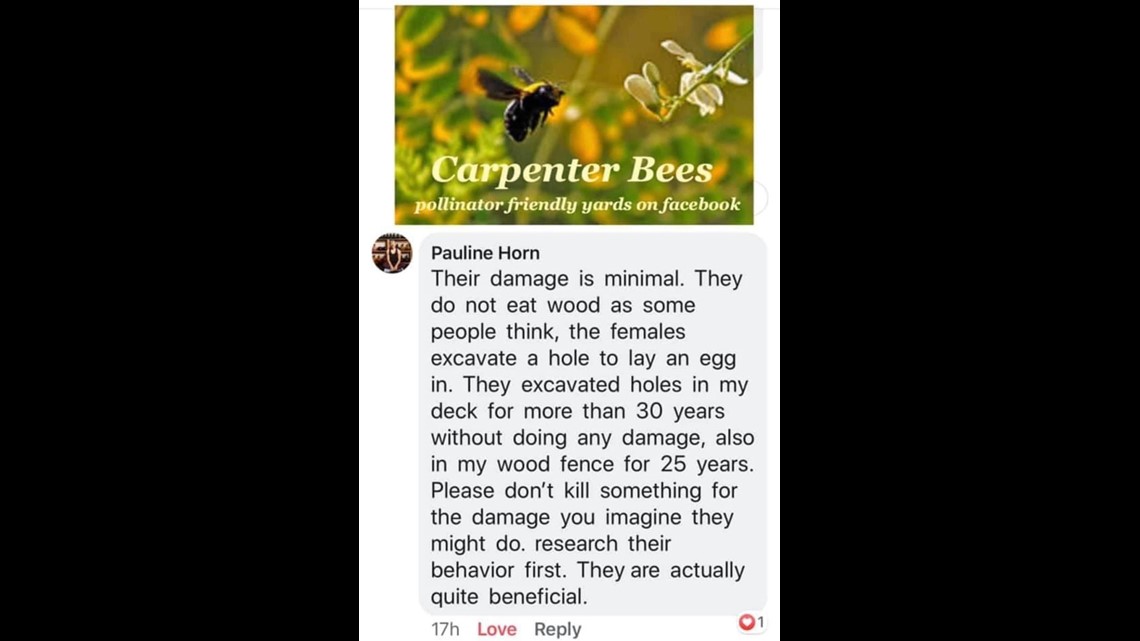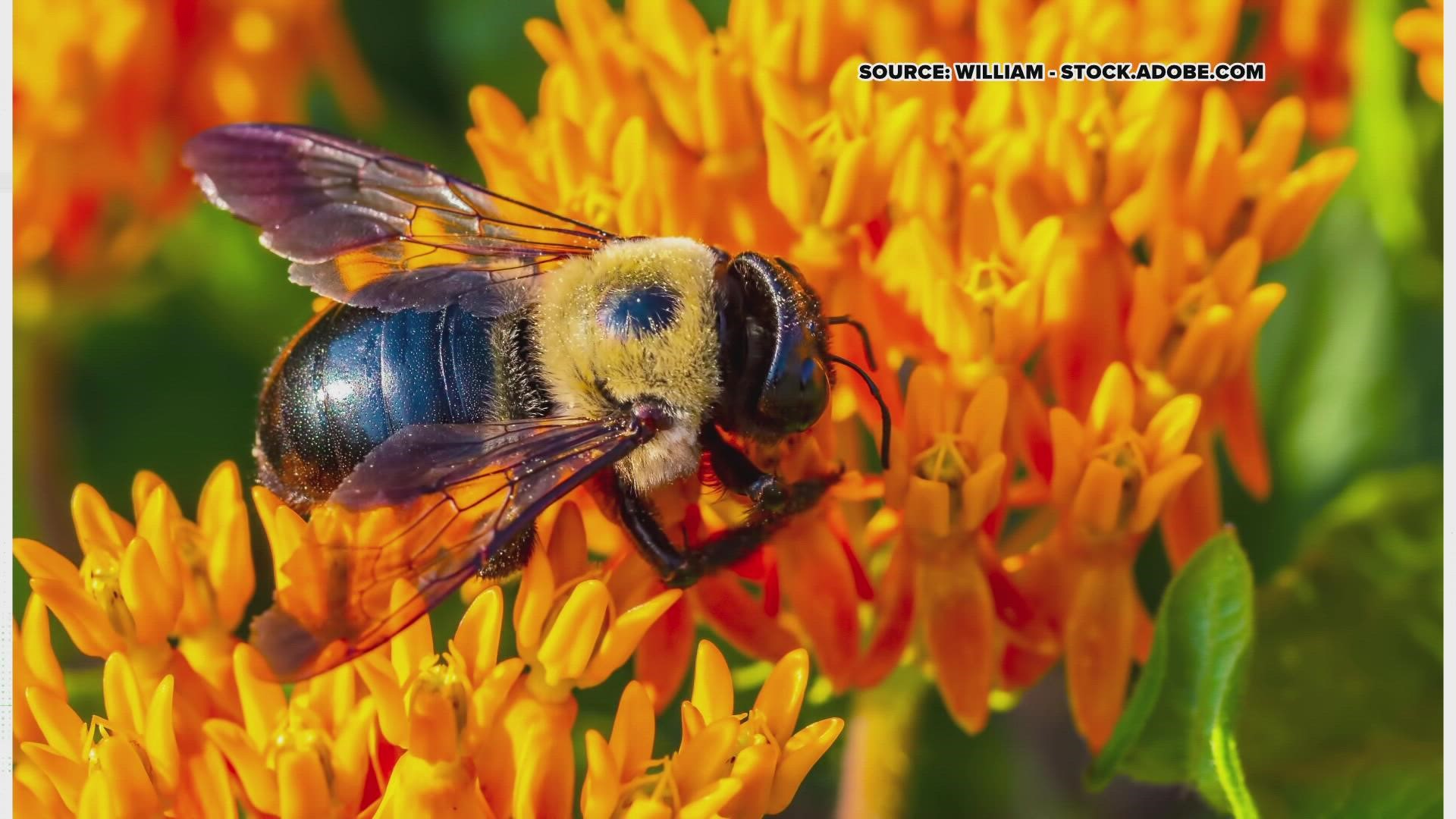GREENSBORO, N.C. — Friend or foe? It's a pest, no less. The Carpenter Bee is all the "buzz" this summer, as it carves itself a home -- right in the middle of your new deck.
Despite its not-so-flattering reputation, there could 'bee' more than meets the eye with this curious creature.
THE QUESTION
A post portraying a Carpenter Bee is flying around Facebook. Pauline commented, "Their damage is minimal... Please don't kill something for the damage you imagine they might do. Research their behavior first. They are actually quite beneficial."
Is it true Carpenter Bees are more helpful than harmful?


THE SOURCES
- NC State Extension
- Frank Fowler -- Forshaw biologist and wildlife division manager
THE ANSWER
Yes, Carpenter Bees do more good than harm. They pollenate flowers, helping food grow, outweighing the minimal damage to wood.
THE PROCESS
Both sources conclude the Carpenter Bee is highly beneficial.
"They are great pollinators," Fowler affirmed.
He acknowledged, "They do burrow into wood, which can cause a problem on decks or the side of a house, but they don't eat wood. A lot of folks have the misunderstanding that Carpenter Bees eat wood, like a termite does, but they don't. They're only excavating that nest site out to raise their young."
Carpenter Bees are among America's 4,000 native bee species. They look like Bumble Bees, but Carpenter Bees have shiny (not fuzzy) abdomens and usually hang out around fence posts or siding. Carpenter Bees emerge in April and May and are loners, who don't form colonies to make nests.
A pregnant female bee will carve out an entrance hole in the wood. She then will make a little tunnel of galleries, where she intends to store pollen-nectar balls to feed her offspring. She is a busy bee, to say the least, so is unlikely to give humans the time of day.
"The Carpenter Bee female has a stinger, but they're solitary bees, so they're not going to aggressively defend that nest, and the risk of getting stung is very, very small. The male has a white dot between his eyes -- you can see very clearly -- and they don't even have a stinger," Fowler explained.
The NC State Extension warns even painted, treated and pungent woods, like cedar, can attract Carpenter Bees. Because they don't eat wood, insecticides might not work. The best way to keep them out of wood, without harming them, is to give them an alternate place to nest. Consider buying or building a Carpenter Bee house -- just make sure it isn't a bee trap.
Do you see a claim needing verification? Submit a short paragraph or selfie video of the inquiry, along with supplemental screen grabs and/or links, to:
- E-mail: VERIFY@WFMY.com
- Facebook: Meghann Mollerus News
- Twitter: @MeghannMollerus

